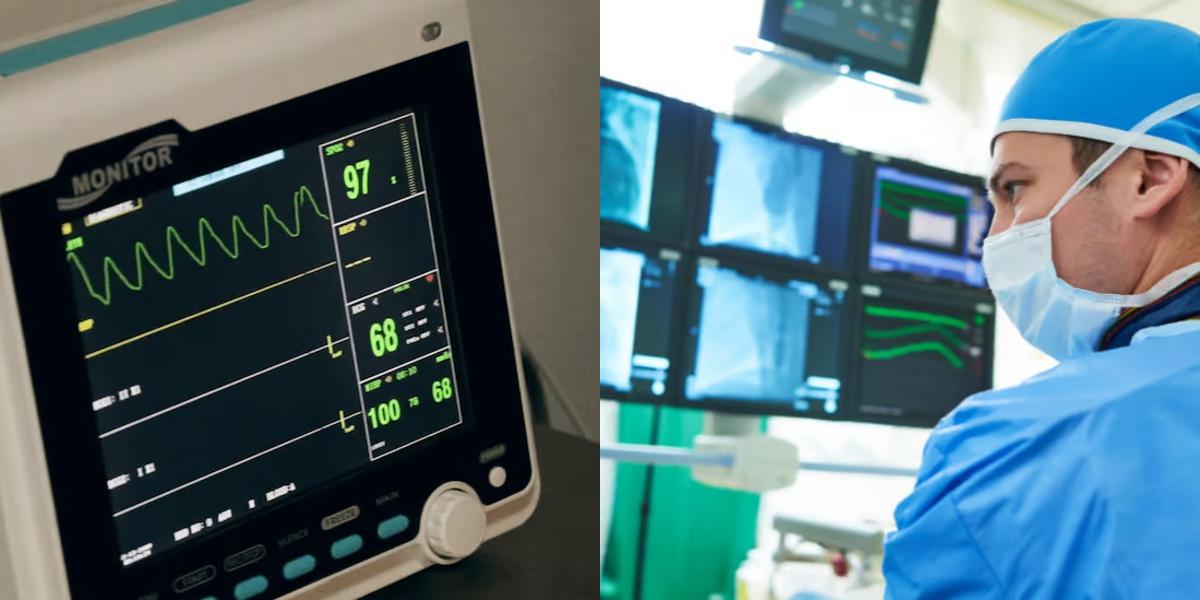EKG vs Radiology Technician

Key Points:
- Focus: EKG technicians focus exclusively on heart function, while radiology technicians work with imaging that spans the entire body.
- Equipment: EKG techs work with electrocardiogram machines, whereas radiology techs handle advanced imaging devices like X-rays and MRIs.
- Patient Interaction: Both roles involve patient interaction, though EKG techs often have more hands-on contact due to electrode placement. Radiology techs may work more behind-the-scenes, depending on the imaging procedure.
- Specialization: EKG techs can specialize in areas like stress testing or Holter monitoring, while radiology techs may specialize in MRI, ultrasound, or mammography.
As the demand for healthcare professionals continues to rise, many individuals are exploring career options in this dynamic field. Two popular roles are EKG technicians and radiology technicians, both of which offer unique opportunities to impact patient care.
Radiology Technician
Radiology technicians operate sophisticated imaging equipment to capture diagnostic images of patients' bodies. They work closely with patients, positioning them for scans and ensuring images are clear and precise. Radiology techs play a crucial role in helping doctors diagnose everything from broken bones to internal diseases, such as cancer.
Career Outlook and Salary Comparison
Both careers offer solid job prospects and competitive salaries, though radiology technicians generally earn more due to the advanced training and specialization required.
-
EKG Technician: According to the Bureau of Labor Statistics (BLS), cardiovascular technologists and technicians, which includes EKG technicians, are projected to see an 11% growth in employment from 2023 to 2033. The median annual salary for EKG techs is approximately $80,850.
-
Radiology Technician: Radiologic technologists are expected to experience faster job growth, at 6% from 2023 to 2033. This reflects the growing need for diagnostic imaging as healthcare expands. The median annual salary for radiology techs is around $76,020, though specialized roles can command higher pay.
Choosing EKG vs Radiology Technician Careers
- Training Duration: EKG technicians can enter the workforce faster, with most programs lasting less than a year. Radiology techs, however, will need to commit to at least two years of study.
- Earnings Potential: Radiology techs generally earn more, but EKG techs can still achieve a rewarding salary, especially with certification and experience.
- Work Environment: Both jobs involve working in hospitals, clinics, or diagnostic centers, but radiology techs may work more with advanced technology, while EKG techs have closer patient interaction focused on heart health.
Final Thoughts
Ultimately, both EKG and radiology technicians play vital roles in patient care, each offering unique benefits. The shorter training and lower cost of becoming an EKG technician may appeal to those looking to quickly start their healthcare career, while the higher salary and advanced technology of radiology might attract individuals willing to invest in more education. Either way, both paths lead to fulfilling careers with strong job prospects in the growing healthcare industry.
If you're ready to explore these exciting career opportunities, Dreambound’s training programs provide access to top educational options across the country. Learn more about becoming an EKG or radiology technician today:

Joanna Paragas is part of the Growth team at Dreambound. Her primary role involves creating various automation to streamline workflows and make tasks more efficient for the entire team. Beyond her professional endeavors, Joanna enjoys spending her free time playing with her dogs and enhancing her knowledge by enrolling in online courses.




